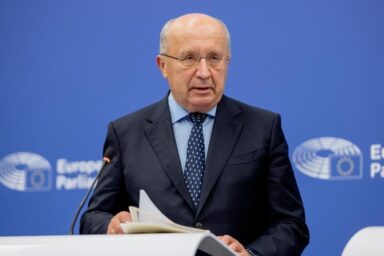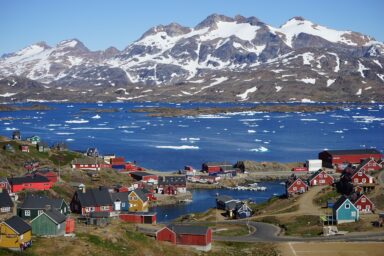Ending Europe’s dependence on fossil fuels, phasing out related subsidies, and scaling up access to climate finance. These are the key demands the European Parliament is putting forward ahead of the COP30 conference in Brazil, reaffirming its ambition to remain a leading voice in global climate policy.
Ahead of the UN Climate Change Conference (COP30) in Belém, Brazil, the European Parliament adopted its position on the EU’s climate priorities. MEPs on Thursday reaffirmed resolution the by a vote of 57 in favour, 23 against and four abstentions, that the EU will continue to set ambitious climate goals in line with current targets. The resolution passed prioritises cost-effectiveness, economic competitiveness, social inclusion, and a high level of environmental protection, underscoring Europe’s commitment to the Paris Agreement and calling for greater global ambition.
Among the key demands is ending the EU’s dependence on fossil fuels, phasing out related subsidies, and scaling up and simplifying access to climate finance — especially for developing countries.
All for one
According to the resolution, all sectors should contribute to reducing emissions and achieving climate neutrality. In it, lawmakers urge the international community to pay increased attention to the climate impacts of conflicts and call on all countries to contribute a fair share in providing adequate climate finance, while addressing debt crises in climate-vulnerable nations and simplifying funding procedures for developing countries.
The upcoming COP30 will focus on efforts needed to limit global warming to 1.5°C, the presentation of new national climate plans and progress on finance pledges made at the previous inception. Lídia Pereira (EPP/PRT) and Vice-Chair Mohammed Chahim (S&D/NLD) will head a delegation at the conference which kicks off in under one month—from 17 to 21 November.
You might be interested
No cakewalk
While the Parliament’s position sets a clear direction, ongoing challenges to fully realise Europe’s climate ambitions remain. NGOs and climate experts point to uneven progress among member states, persistent reliance on fossil fuels in key industries, and structural barriers such as slow permitting processes. Also a problem? Fragmented investment efforts.
Financial constraints remain a concern. Analysts note that competing priorities, including defence and migration, strain available resources, while the EU’s climate finance commitments—such as the €100bn annual target for developing countries—have yet to be fully met.
What climate change?
Political resistance and public fatigue—reflected in divergent voting patterns and debates across member states—continue to complicate swift implementation of climate policies.
The resolution’s call for unity masks differing national perspectives: some governments emphasise climate policy as a driver of industrial innovation, others frame it primarily in terms of social justice and environmental responsibility. Successful coordination between EU institutions and member states will be key to presenting a coherent stance at COP30.
Innovate or die
As is often the case, innovation in governance and financing is seen by many experts as vital to overcoming current limitations. Reforms to permitting rules, state aid, and financing mechanisms will be necessary to support rapid decarbonisation while maintaining competitiveness.
The European Parliament’s resolution recognises these complexities, underscoring the need for political realism alongside ambition. COP30 will serve as a critical moment for Europe to demonstrate its capacity not only to lead in ambition but also to deliver concrete results.
Looking ahead, translating the resolution’s goals into action will require focused investments, streamlined regulatory processes, and transparent delivery on climate finance promises. Open dialogue—within the EU and with global partners—that embraces the complexities and trade-offs will be essential. If Europe can meet these challenges with pragmatism and unity, COP30 could mark a turning point in its climate journey.











